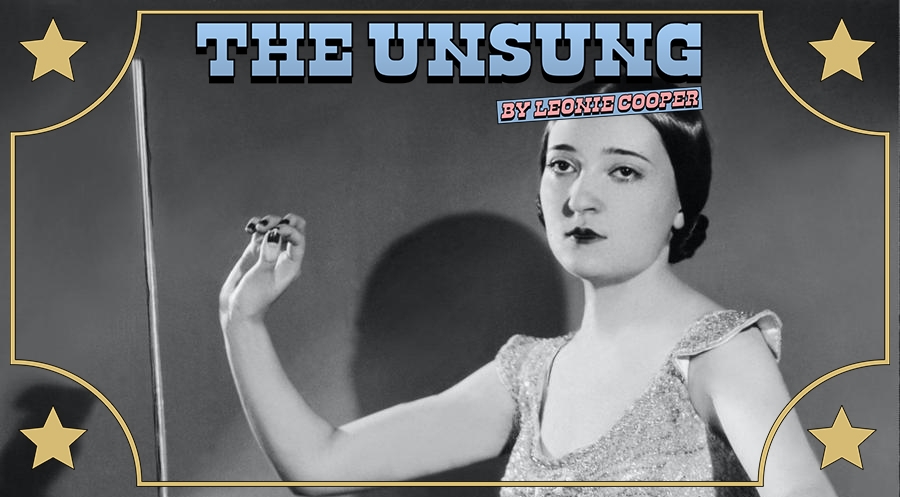To be a violin virtuoso is an impressive feat, certainly, but violin virtuosos come and go (no offence to all the violin virtuosos reading this). To be the finest Theremin player the world has ever seen is something else entirely. Clara Rockmore started out as the former. Born into a Jewish family in the Russian Empire of Lithuania in 1911, she was already playing the piano at two and joined the St Petersburg Conservatory of Music at just four, becoming their youngest ever student, auditioning while standing on a table. After the Russian Revolution the family moved to America, arriving on Ellis Island in 1921 after Clara and her sister Nadia – herself an accomplished pianist – played concerts as they crossed dangerous borders, attempting to gain safe passage to the United States.
On arrival, the sisters continued to play to rapt crowds, but due to an acute case of tendonitis, Clara had to give up playing the violin. By chance, she would meet the Soviet inventor Leon Theremin, who had given his name to a peculiar and fascinating instrument that made sounds using radio waves, the player touching the air around the device to create the eerie noise. It was the first ever electronic instrument and Clara was fascinated. She focused the same energy that she had put into her violin playing, on the Theremin instead, helping Leon to improve the instrument and in the process, becoming so finely attuned with the invention that no-one would ever play it better. It was Clara who suggested that Leon change the sensitivity of the antenna and increase the octave range from three to five, tweaking it to her specifications and entwining herself even more with the creation.
Funnelling her experience and musicality into the Theremin, instead of approaching it as a scientist’s invention, Clara treated it like a classical instrument, using her fingers to delicately and sensitively ‘play’ the air and bring out its humanity, conjuring up that unmistakable sound from what looks like nothing. “I was fascinated by the aesthetic part of it, the visual beauty, the idea of playing in the air, and I loved the sound. I tried it, and apparently showed some kind of immediate ability to manipulate it,” explained Clara.
Her live debut took place at New York’s Town Hall in October 1934, a show notable for also being the first known interracial collaboration in electronic music, with Black vocalists from the Hall Johnson choir – run by the Athens, Georgia-born composer of African-American spirituals – joining Clara onstage to perform the likes of ‘Swing Low, Sweet Chariot’, ‘Water Boy’ and ‘O Lord Have Mercy On Me’.
Clara would tour across America, stunning crowds with her mastery of the bold new instrument, including three joint coast-to-coast runs with her good friend, the baritone singer and civil rights activist Paul Robeson in the 1940s, the revolutionary potential of electronic music steeped in the very roots of the genre. Though her Theremin remains much more well known than her politics, it’s a vital part of who Clara was, strongly believing in equality and justice. Her name can still be found written on a letter that supported the Brooklyn Museum’s sponsorship of another gallery’s show, dedicated to ending the lynching of Black Americans.
Clara is one of the many lives heralded in new documentary Sisters With Transistors, which looks at the forgotten stories of women who forged out new pathways for themselves during the electronic music revolution of the 20th Century. Clara’s story is the earliest of the lot, predating the likes of the BBC Radiophonic Workshop’s Daphne Oram and Delia Derbyshire by 25 years, and almost 100 years on, still sounding just as innovative.
Hear Clara Rockmore’s influence in the work of:
Holly Herndon, St Vincent, Carolina Eyck
Sisters with Transitors, written and directed by Lisa Rovner, is released in the UK and USA on 23 April. See modernfilms.com/sisterswithtransistors for more information on where to watch the film and join special events.
Like what we do? Support The Forty-Five’s original editorial with a monthly Patreon subscription. It gets you early access to our Cover Story and lots of other goodies – and crucially, helps fund our writers and photographers.
Become a Patron!






